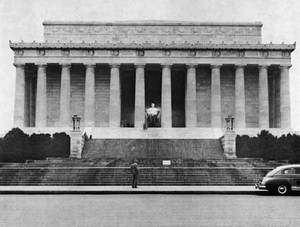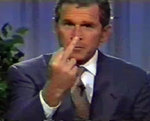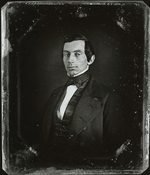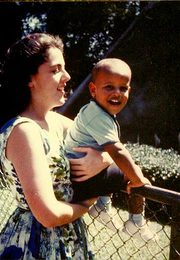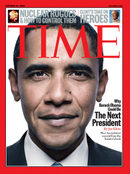One thing I’ve learned from my studies of American political history is that, while all elections matter, some matter more than others.
- Most elections are transactive. They are a choice between two worldviews, followed by a negotiation of those views.
- Transformative elections happen once in a generation. They realign the political planets. They deliver a new Thesis, a new set of myths and values accepted by the majority, to power.
Transformative elections also deliver a new dominant medium to power. And after such an election people will go on, for the rest of their lives, thinking the world created by the transformation is the world, that nothing else but its Thesis and its medium can exist or ever has existed.
This is particularly true after a Validation election. New leadership is offered, but the people ultimately go with the Thesis, validating its assumptions. That validation can’t last, of course, and you later get an AntiThesis election, in which a new set of ideas, leaning against the Thesis and moderating it, take power. Once this AntiThesis runs its course comes the most curious type of election, the Excess election, in which the Thesis is reaffirmed even if everything the AntiThesis did worked.
We can see this pattern play out throughout the 20th century. The 1896, 1932 and 1968 elections were transformative, bringing a new Thesis to power. The 1908, 1948 and 1980 elections validated the Thesis, bringing it to its height of power. The 1912, 1952 and 1992 elections were AntiThesis elections, in which a set of assumptions leaning against the Thesis came to power. The last such winner, Bill Clinton, was quite explicit about this, calling his the Third Way.
Then you have these Excess elections, these curious selections where the best man loses, where evil seems to triumph because the Thesis has become obsolete. The 2000 selection was one such campaign. So was the 1960 campaign that brought John F. Kennedy to power. As was the 1920 election in which James Cox lost to Warren G. Harding.
So if you’ve done your math you know the 2008 election is a Transformation election, and perhaps the 2004 election should have been.
Most Americans already intuit the need for a new Thesis, a new set of myths and values which will inform power, and a new medium to carry it forward. Most see this Thesis coming from the Democratic Party — the new Thesis usually emerges from the old AntiThesis, as Eisenhower begat Nixon and Wilson begat Roosevelt.
Most of us also understand that this medium, the Internet, will dominate the future, with TV becoming a mere application upon it.
And so we face our choice.

Hillary Clinton, like Nixon before her, stands for the old AntiThesis.
Barack Obama, on the other hand, suggests transcendence.
Transcendence was a word I first used here on Sunday, after reading the life story of Stanley Ann Dunham, and it refers not just
to a switch of parties, or a change in our dominant Thesis, but an
attempt to build something really new, to transcend the old divisions
and govern in a new way.
There have been, by my reckoning, only two transcendent elections in
American political history.
The first came in 1860, when the old order
of the Constitution was blown up by the Union under Abraham Lincoln,
when the United States are became the United States is, when the
Declaration of Independence became our founding document, and from
which the great poetry of our meaning as a nation emerged.- The second
came in 1932, when the Populists and Progressives were united in the
person of Franklin D. Roosevelt, in the theory of the New Deal, and in
the Thesis of Unity which still has a hold on large segments of the
Democratic Party base.
It’s important to note, as you watch this campaign, that the
difference between transformation and transcendence lies in stagecraft.
Both Lincoln and Roosevelt were master wordsmiths. They were both
highly intuitive politicians. Both were aware of the forces gathering
around them and were somewhat in awe of them. They saw their causes as
being greater than themselves, which gave them the courage to persevere
in them, to sacrifice their very lives to them, to give them the last true measure of devotion.
What becomes clearer and clearer, each time he speaks in victory, is
that Barack Obama has the potential to be that kind of transcendent President.
Hillary Clinton does not. Hillary Clinton has spent a lifetime fighting
for what she believes in, fighting against a dominant Thesis which saw
her as an enemy before she committed to fighting it. She spent 16
years, with her husband, building an AntiThesis to that Thesis in the
rocky ground of Arkansas, and they brought that AntiThesis to power,
delivering two (in retrospect) fairly good, fairly competent, fairly
prosperous terms of governance to Washington.
But she didn’t transform Washington. She certainly didn’t transcend it. It
was not possible for her, in her time, given her gifts, and those of
her husband. To call her a Democratic Nixon is not to damn her, in my
eyes. It is in many ways to praise her, but also to warn that her
faults, her flaws, her own inner demons will, if she’s elected, become
baked into whatever political Thesis emerges for the next generation of
Americans.
When Nixon ran in 1968, Republicans sensed this danger. But they
said, Ronald Reagan is too green. He has been Governor for less than 2
years, we don’t know if he knows what he’s doing, he plays the music
but does he hear the song. A late attempt to bring him to power failed,
as did his second campaign in 1976. So by the time Reaganism came to
power it had been poisoned so thoroughly by the Nixon well that it was
indistinguishable in many ways from it. The paranoia, the hatreds, the
confrontation and desire to dominate, all the personal flaws of Richard
Nixon were only papered over by Reaganism. They dominate us still, in 2008. We look at George W. Bush and we see
them clearly. Nixon is still the one.
So that is the choice. Transaction as transformation or an attempt
to transcend. Neither guarantees an end to
corruption. Neither guarantees much of anything. The future remains a tabula rasa, a blank slate, an empty page, a blinking cursor before us.
Personally, given that choice, I choose transcendence. But I’m just a stuffy old romantic at heart.


